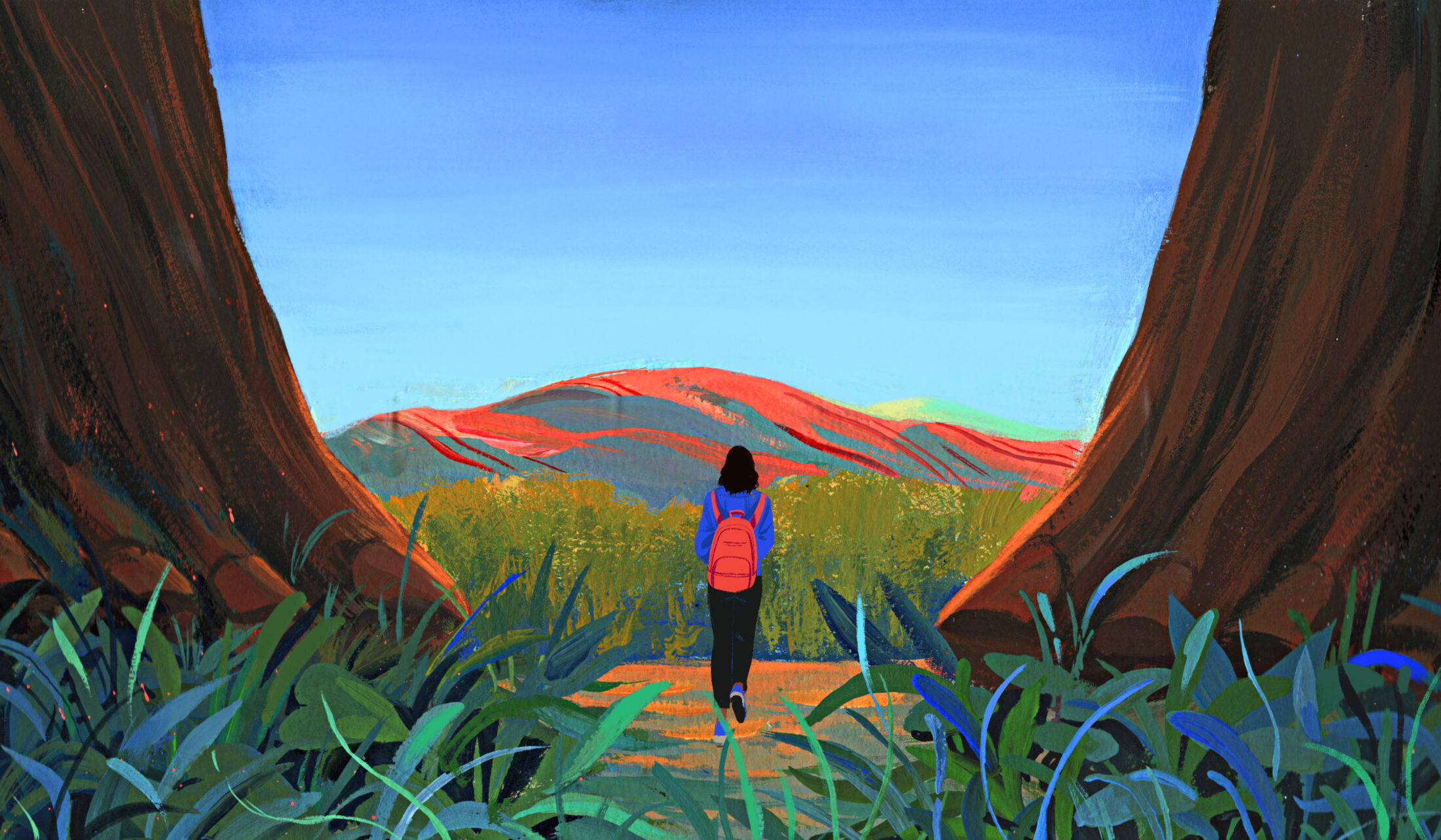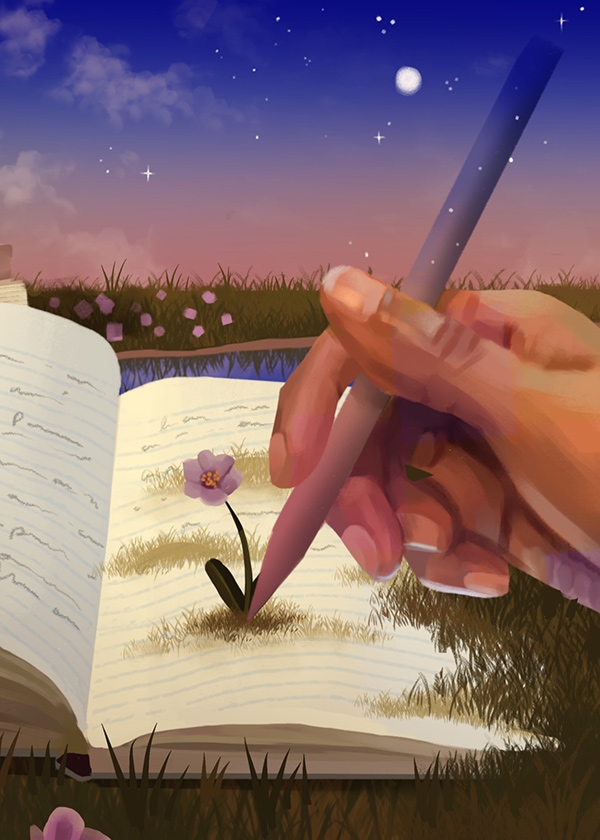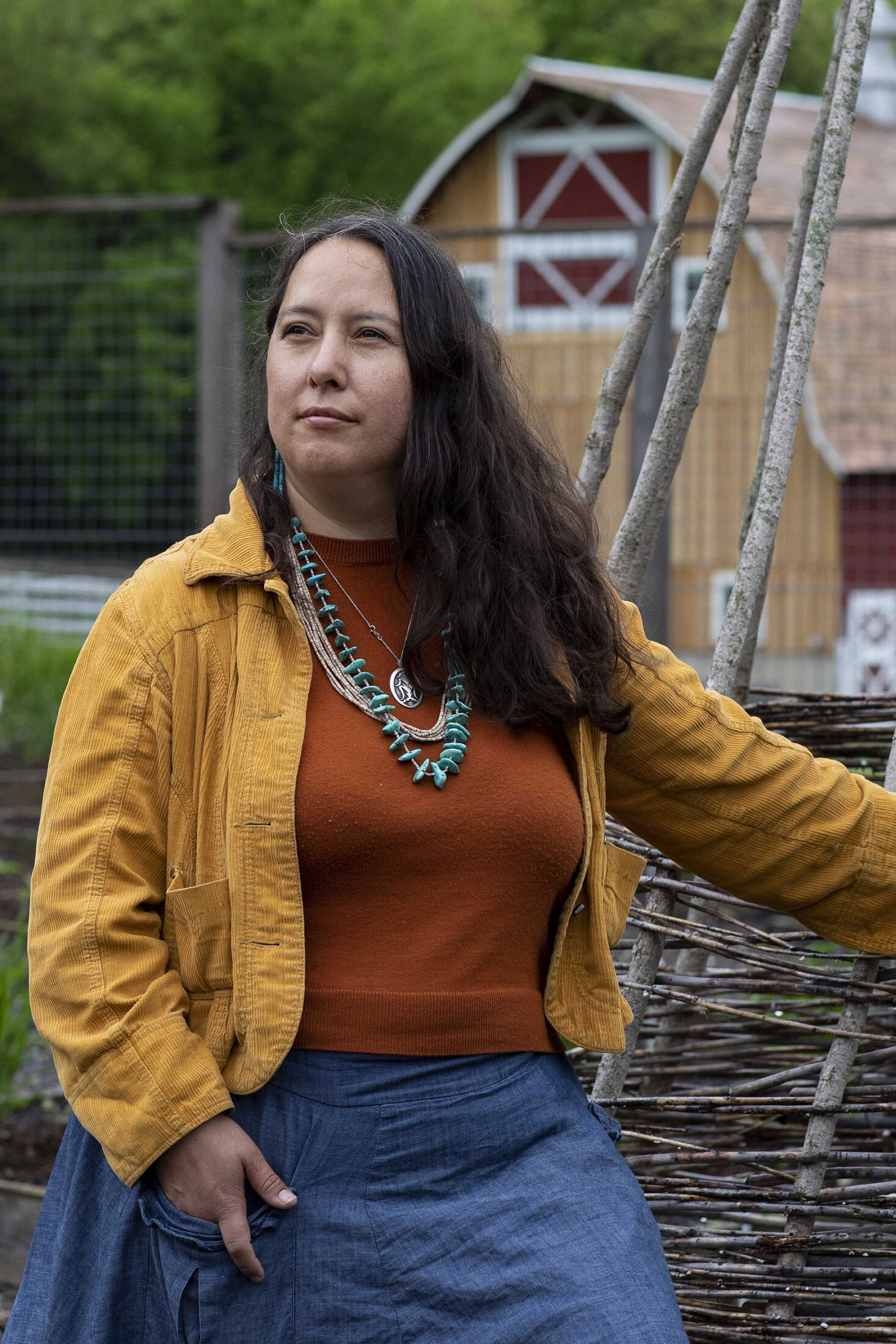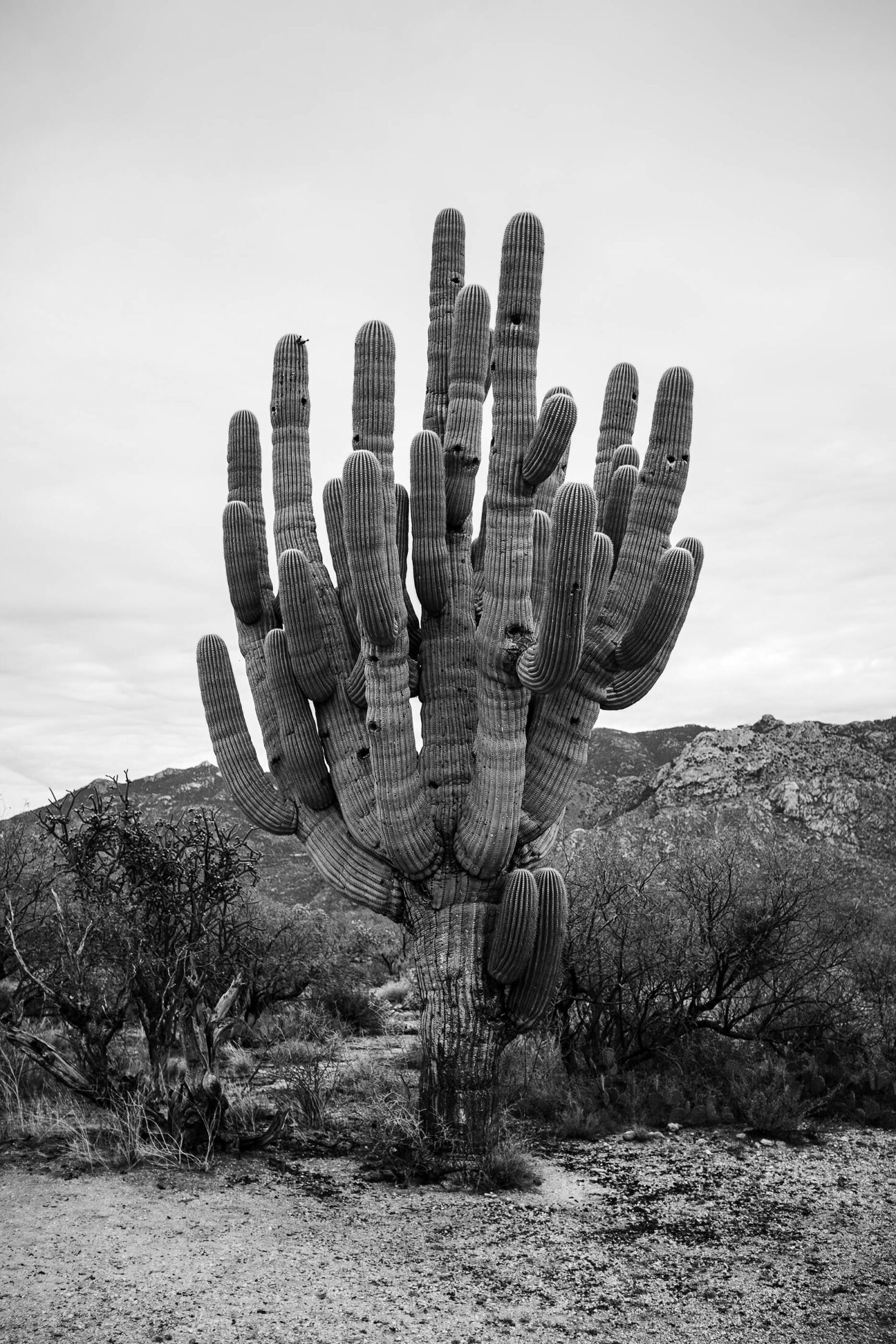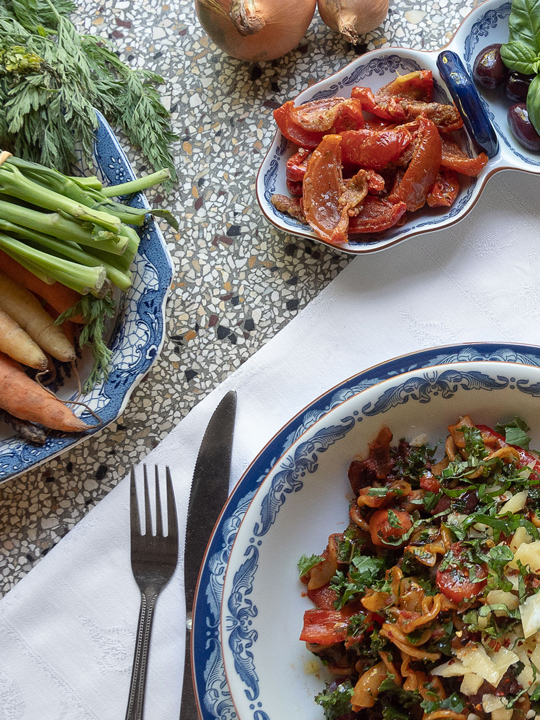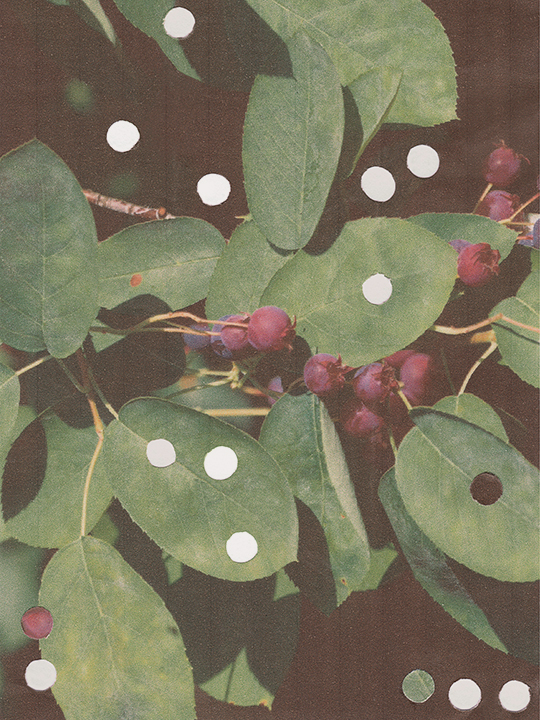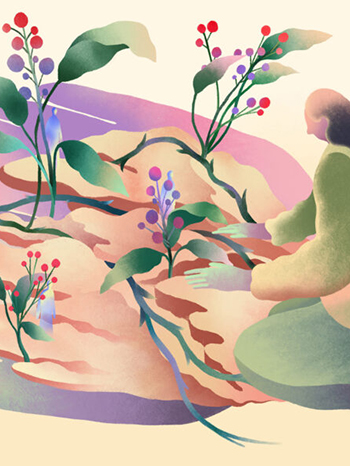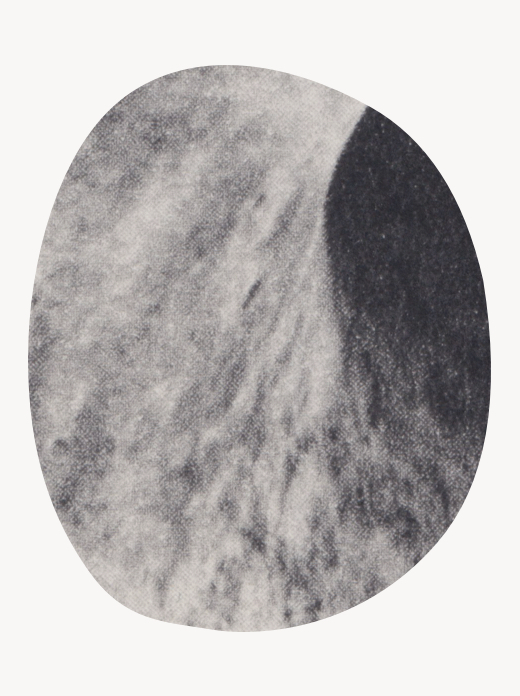Jamie Figueroa is Boricua (Afro-Taíno) by way of Ohio and a long-time resident of northern New Mexico. She is the author of the novel Brother, Sister, Mother, Explorer. Her awards include the Truman Capote Scholarship and the Jack Kent Cooke Graduate Arts Award. Her writing has appeared in Epoch, Yellow Medicine Review, Sin Fronteras, McSweeney’s, and American Short Fiction. She is an Assistant Professor at The Institute of American Indian Arts.
Tara Anand is an illustrator and visual artist from Bombay, India, based in New York City. She works primarily in gouache on editorial and picture-book projects. Her clients include The New Yorker, The New York Times, Apple, Netflix, Southern Poverty Law Center, Harper Collins, Penguin Randomhouse, and others. She was awarded a silver medal from the Society of Illustrators and was a World Illustration Awards New Talent winner.
Confronted with narratives of catastrophe and colonialism that restrict her spirit, Afro-Taína author Jamie Figueroa summons the imagination, sovereignty, and courage needed to restory herself and rebirth the world.
“We don’t heal by forgetting, we heal by remembering.”
Leslie Marmon Silko
We’d been warned. Still, we stood in front of the tap as if betrayed. We’d run out of water, again. No matter which faucet we turned, bathroom sink or kitchen sink, not a single drop. Before we’d downsized from our four-bedroom rental into this one-room casita, we were told that the water from the well came and went. It was old and shallow as far as wells go. We could manage it, we’d convinced ourselves, with camping supplies and access to a hose that consistently delivered city water to the property, from which we could haul in three- and five-gallon jugs that we’d heat on the stove and use to wash dishes, bathe, and if needed, flush the toilet.
At the time, it had seemed a small sacrifice for relief from monthly expenses that had expanded beyond our incomes. Inflation snickered at us every time we opened another utility bill, calculated prices at the grocery store, and partially filled our gas tanks. Our landlord would be raising the rent for the third time in just under five years. So we accepted the generous invitation to live in this smaller space, beautifully built, situated on a rural-like property in the middle of Santa Fe, a city where housing availability is next to none. Despite the glittering oasis of Santa Fe—an international travel destination cluttered with galleries, museums, specialty shops, restaurants, and venues like Meow Wolf—New Mexico is one of the poorest states in the country. Rent and home prices are on the rise to a point that is excruciating, far beyond their value, while houseless populations are at an epic level.
Here was a temporary refuge, a place for us to reset our finances and become better acquainted with the microbiomes in the soil, the soul of our land. To realign with our own purpose and values and reset our future course to those coordinates. The compost teemed with worms, and the stars, a clear visible history each night, reminded us that we were once seeds.
Still, we had an instinctual response when the water ran, obeyed the turn of our wrists—a natural, expected order flowed, meeting our demand—and another instinctual response when it did not. It felt like an assault. It felt personal. Clearly, we were not in control, and were constantly reminded.
Meanwhile, the largest fires in New Mexico history burned miles from us—Calf Canyon / Hermits Peak and Black Fire among twenty in the state. Smoke churned the distant air into ominous shapes. Two dozen chickens arrived from a family evacuating Las Vegas. They seemed to appear miraculously one morning, quietly and thoughtfully moved in the dark to ease the shock of transition. The lone rooster kept his morning pledge despite being a stranger, startling us awake before dawn.
It seemed all those in need, four-legged, two-legged, and feathered, were welcomed to this property. To lessen the disruption inherent in the transition for our two-year-old son as we downsized and moved over a number of weeks, we explained that what once was “home” had become our “old home” and where we lived now was our “new home.” He seemed to understand immediately, and this became how we distinguished our homes as one emptied and the other filled.
There are many kinds of story.
A story can simply be a thing. The way dominant culture has turned a river into a thing, sea coral into a thing, a skunk, a stone, a sparrow—all into things. A black man. A brown woman.
Or.
Or, a story can be living. It can be an activating force that alters vibration, transcends time, and shifts not only how we perceive, but our shared reality itself. A presence you can feel drawing close to you, taking hold of your hand, pressing its lips to your ear. Moving just beyond the limits of our mental constraints, it is an ever-shifting spirit that penetrates our cells and the infinite possibilities and combinations of beingness encoded there. Together, the story and we—each one of us—become something altogether new.
The previous fall, during a fiction writing workshop I was teaching at the Institute of American Indian Arts, my class became impassioned with story. Stories of the future.
Students spoke to the futuristic movies and novels they cherished, for good reason, many of them iconic/classic. Apocalyptic stories of the future. Dystopian motifs. Not far from where we find ourselves now. For some of us, I’d say, emotionally on point.
Prophecies.
Predictions.
At some point, between building on the foundational elements of craft, reading short stories, and considering interviews with contemporary Indigenous writers, class came to a halt.
Together we wondered—as writers, as story makers—about how we were creating the future in our work, and thereby our own future off the page. There are those who have prophecies within their own traditional knowledge systems. Then there are those of us in a lifelong process of repair and rematriation with our traditional knowledge systems who are creating our own prophecies. The voltage of imagining that power pricked down the backs of our necks.
“Your stories can and will not only change your own lives, but they have the potential to change our shared realities. What kind of world do you want to inhabit? What are the stories that will make it so?” I asked. “Can we even imagine such a thing?”
Our pens seemed to stand at attention, waiting. Daring us.
Shortly into our stay, a baby goat, six weeks old, arrived and was named Mukti, a Hindu word meaning freedom from ordinary experience, freedom from the mortal world. Instead of remaining in the pen with the horse, Dulce, and the granny goat, Crystal, she went wherever she pleased. In and out of the house, around the yard and down the lane, happy to follow whomever was walking wherever they might be going. By sundown, she would cry incessantly, despite having been given a bottle of milk. The following day her cries would continue outside our door while our son napped, as if she were calling to her playmate. He would hug her each day before sunset along with the chickens and the cats. Her cries—a piercing, twisting, undeniable call for attention, for mercy—became the backdrop for the soundscape we heard all day, every day.
The impact of the move surprised me. The disorientation embarrassed me. It seems I needed the “old home / new home” terminology as much as my son did. I had grown up living as if homes expired after a year, my address changing whenever my mother found a more affordable location. Later, as a writer struggling to find the time to create my art, I housesat, slept on couches, rented a single room when I could. I knew how to be mobile, my root structure held not within a single residence but within the grace and generosity of friends. Then, I partnered, found secure employment that allowed me to write every day from the same room in our home. I grew pregnant and birthed our son, and, somehow, I managed to spend nearly five years at one address. In our new situation, I was not as flexible as I had once been. We were still in the pandemic: the stress of staying safe, the extreme vigilance, had contorted and permanently marked us. I felt raw, more and more with each passing encounter. The intermittent water source, the heat, the smoke, the illusive internet—all actively peeled layer after layer from my sense of the familiar. I was in need of council.
Women.
Indigenous women.
Mothers.
One feminine expression of the Divine from my own Afro-Taíno Caribbean lineage is Ciguapa. Ciguapa embodies “intuition, instinct and sovereignty.” She calls to us from the edge of la selva / the forest; the wild, unpredictable place. Come with me, she urges us, and behold your true knowing. A knowing that has not been compromised by religion or philosophies, by cultural failings or societal dictates, by what you have or do not have, how you look or do not look, by your origins or by your citizenry. Ciguapa possesses uninterrupted power, our expression of creativity—undiluted life force—which is in direct opposition to the ongoing colonial project. Her backwards feet make her impossible to track, impossible to be trapped. She doesn’t submit to any external authority but instead sneaks up on villagers and tries to entice them to come with her—to leave their routines and limitations, which anchor them in their own constructions of self; she nudges, or outright drags them into another realm, an unknown experience that renders them strangers to themselves. Out of this death of the familiar and disorientation within, a new iteration or personhood is born. Sovereign.
To consider a future beyond what I’d experienced but desperately wanted, to imagine such a thing, I needed to hear women speak, and through them, hear the combined knowing, warnings, and wisdom of their ancestors. Despite my own mother’s failings and our rupture, I’m deeply devoted to the archetype of mother, of grandmother, and seek divine feminine expression to help me navigate my life.
The Indigenous women and mothers who formed my council included Dr. Marianela Medrano, Sherri Mitchell, and Dr. Renda Madrigal, all of whom are making significant contributions to their communities and cultivating positive change far beyond. Their traditional knowledge, their participation in continual creation of new/eternal realities and in healing themselves and others, is essential and extraordinary.
When I spoke to each of them in the winter of 2021, I could not imagine that late the following spring I’d be holding to their words as if they were prayer beads.
We planted corn from Oaxaca with three others from the property. Crawled around on our hands and knees, pushing first our finger through the dirt, then the seeds. We labored under the strain of our limitations, what we could not afford anymore, what we had to reimagine for our family, what we did not yet have in our lifetimes: an enduring, true home; an enduring, true sense of belonging. Our arms reached and stretched, our skin and the earth’s skin touching, each of us whispering prayers in our own ways.
There are those of us in a lifelong process of repair and rematriation with our traditional knowledge systems who are creating our own prophecies.
The penobscot term, N’debelomosol s’in, means, “I own myself.” Sherri Mitchell—a Penobscot Indigenous rights attorney, educator, author, and the founding director of the Land Peace Foundation—warned, “It doesn’t mean I own myself, therefore I have all the rights. It means I own myself and therefore I am the keeper of the balance between the rights and responsibilities that I carry within my being.”
All causes have effects. All choices have consequences. Words and stories have impact. I would be safe to say we can agree on this. Sherri, however, unpacked it even more: Sound creates vibrations that transcend time and space. Inherent in my freedom are responsibilities. As a human being I own myself.
As a writer, I am fashioning reality. What are the details of that world? What am I responsible for? Would I want to inhabit the stories I create?
In my conversation with Sherri, “post-trauma” and “post-colonial” are empty terms, far from living realities. “The danger,” she explained during our conversation, “is that it normalizes the time that we’re living in, which is very much still a time of ongoing colonization. It’s a time of ongoing trauma.
She asked, “How many levels of waking do we need to have before we’re outside of this distortion, this dream, and we’re creating a new dream together that is based in harmony and balance and mutual respect and honor of sacred life?”
The horse, Dulce, true to her name—sweet—as well as passive and elderly, dropped her head within our son’s reach. His small hand petted her nose, her neck. He studied her ears and how they moved, watched her tail as she conducted it. The chickens continued permitting him embraces, with only an initial show of opposition. He was careful with their warm eggs in his grip. “Thank you, chickens,” he repeated after us.
Datura opened wide and white, while hummingbird moths swarmed at dusk, dipping themselves into those blossoms of bliss. Sunflowers began their ascent. Bumblebees lumbered from blossom to blossom as if bears tasting spring’s first honey. Our son learned not to touch the datura and could name the bee balm, and quelites—wild greens—that we cut (not pulled), steamed, and ate with eggs. We planted the raised beds, too late. More of an exercise in learning, remembering how to grow, as we were uncertain of the coming season, the rain, the faulty irrigation, and our own chaotic lives—full-time work, full-time child tending, and the time it takes to haul and heat water. Every basic task seemed to threaten our ability to wield the day for our own use.
The fires spread. There was talk of evacuation plans; whether we were in the path or not, the terror was infectious. It stung and constricted us when trying to take a full breath, just like the smoke charging at our bodies from the other side of the mountains. It seemed as if we’d continue swinging from one terror to another, first the pandemic, then our fragile democracy, the fires. Ever cautious while trying not to steal magic from our son, we were fatigued and broken in ways we could not even begin to express to those we’d known and trusted for years. Our tongues did not even try to tell the story of the end of our world.
The WiFi continued to tease; we made excuses and moved about the property during meetings, the signal a dance of connection. To others seeing us on the screen, it must have seemed like we’d landed in some undisturbed, eternal garden, a creation story where the land and nature are intact, in constant abundance, ever giving, ever forgiving, holding us close in a persistent gravitational embrace, nourishing us, even when we break under its bounty, again.
Mukti cried her horrible, aching cacophony of longing, and our own grief caught in our throats.
How can we trace deep knowing through our minds and bodies? How does that knowledge impact our ability to imagine for ourselves and to self-create our futures? Are we working from colonized imaginations with chained predictions, our spirits inhabiting a prison, generations old?
“Intuition is accessing the part of me that is still deeply interrelated and interconnected to all things,” Sherri said. “The part of me that has existed since the beginning of time, the part of me that has lived every one of the thousand lifetimes and that has retained the knowledge that I have gained through my experience over those lifetimes … When thinking about intuition, what I’m thinking about is sacred guidance.”
Not a theory. Not a metaphor. Not magical realism. Just life. Life. Sacred life. And it’s this perspective, enlivened and embodied—that understands holding the balance of rights and responsibilities—that is needed in our stories, the restoration of knowing as it pertains to our wholeness and to our belonging.
Blush yellow and vein purple currants ripened. Bushes of them busied the front and back of the property, and the courtyard. Their supply was endless. We spent mornings picking them, our bellies full of seeds. Gooseberries grew outside our front door, translucent orbs that our son disappeared into his mouth. One rose bush, decorated in sunset blooms, perfumed the air and caught me every time I passed by. I breathed in its thick, ancient, pure scent, medicine for the muscle of my heart.
Every week there was a “corncerto” in the garden. At 8 a.m., with coffee served Turkish style and breakfast tacos, a cello player and a guitar player, songs sung for the corn, amaranth, squash, sunflowers, bee balm, and any other living thing in need of such nourishment. Like an instrument that had forgotten its own sound, I, too, was in need of tuning.
Our backs grew sore. Our arms were in a constant aching strain from hauling, lifting, and pouring water, and from picking up our son, who flourished as if ripening too—embedded as he was in the natural daily rhythms of the natural world. We were both stronger and weaker at the same time. We found ourselves meditating on other parts of the world, where daily treks to the well consume lives, hours spent tending water to ensure life. Our need and our thirst bound us across space and time. We couldn’t pretend otherwise.
In the arroyo, our son learned to name coyote tracks, goat tracks, dog tracks, and horse tracks. His memories will begin with our “new home.”
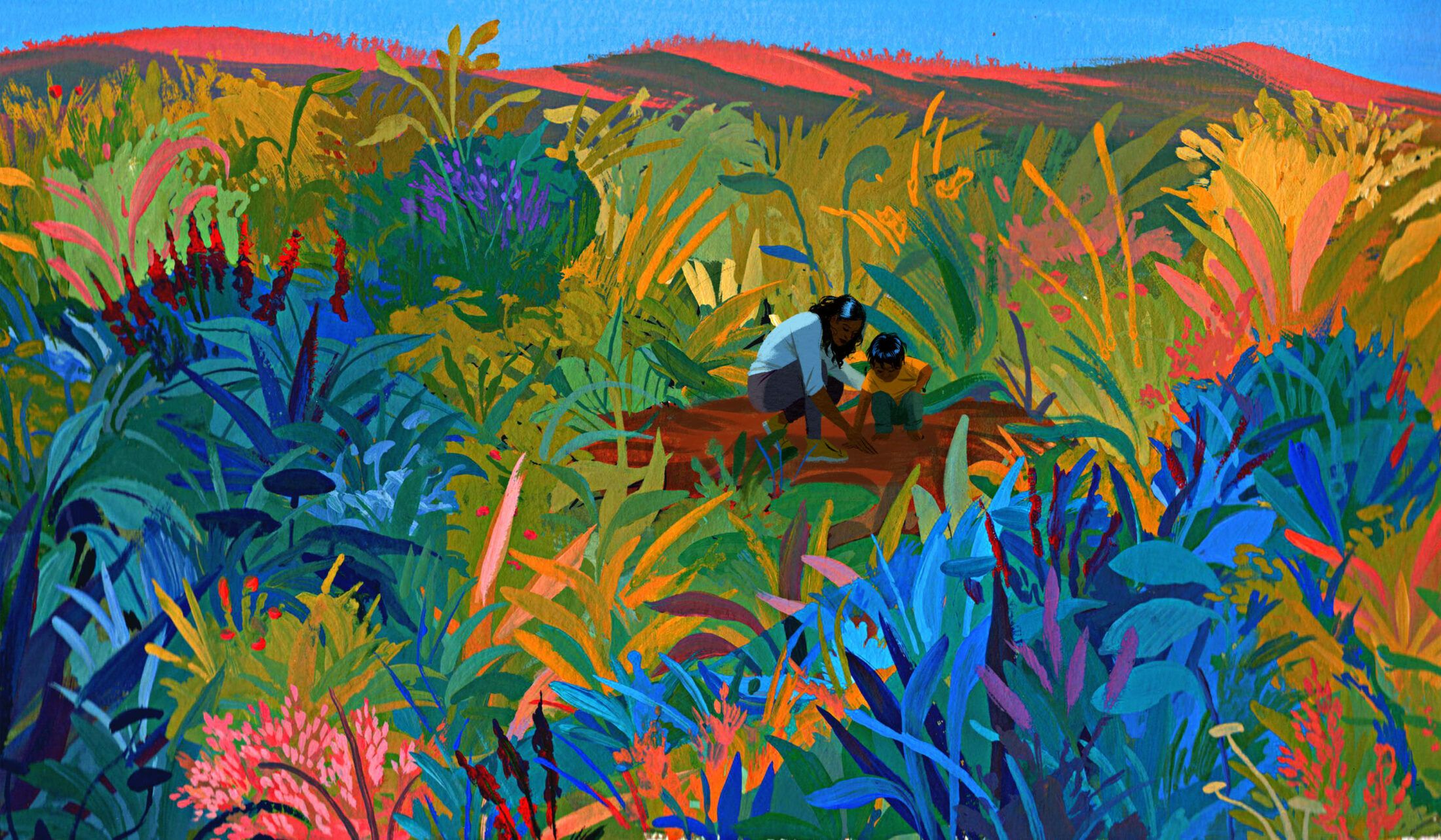
While resetting our finances—cutting our expenses and saving for our next move—we also reorganized how we spent our days, setting aside a portion of time that we owned for ourselves. In this portion of time, smaller than I wanted, barely present, I wrote. My own private ceremony, my own sacred act. Simultaneously, life was constantly creating all around me, the power of it evident with each breath, everywhere I looked. Its force could not be ignored.
It was here I could feel Ciguapa’s presence, beckoning us to find our sovereignty. Her loyalty to us, regardless of how we may have resisted her for a lifetime, for generations, in order to be safe, to survive no matter how limited, how impoverished and malnourished, within the cage of assimilation.
Dr. Marianela Medrano, poet, scholar, therapist, founder of Palabra Counseling and Training Center, and of the podcast What a Word is Worth, further educated me, a fellow Afro-Taína, on Ciguapa and her persistent, pervasive call.
Ciguapa reminds us of “intuitive knowing, instinctual knowing,” Marianela said. “The knowing before we are covered by cultural givens, before the beliefs that severed us from our origin. Our Indigenous knowing. It requires a level of trust in ourselves, in who we are.”
Two fountains—one at our front door, one at our back door—trickled water, recycling it through a small pool. A misleading suggestion, as there was no real water to comfort us. Our son played in the trickle, filling his tiny cups and pouring them back and forth. Two linden trees burst into flowers in the courtyard, clouding the air with their essence. All along our south facing windows, lavender bushes grew fat, heaped over in bees. When we walked past the hives down the lane, their song and dance echoed in our ears, the vibration heard and felt. We covered half a dozen compost piles in gleanings from the local co-op. Watched it decompose the known into nourishment for the yet-to-be-known, the waiting-to-be-grown. We led Dulce and the goats down the road to another paddock where there was more shade. The migration each day a navigation of occasional traffic, two blind curves, three four-leggeds, and our son, who rejoiced in the parade while I sweated under the sun, filled with an animal alertness, anticipating any harm so I could immediately protect him.
Dr. Renda Madrigal, a Chippewa author, clinical psychologist, and mindfulness facilitator, added to what Marianela said, including that “Western civilization diminishes intuitive, instinctual knowing and turns it into something silly.” She related the body’s knowing and intuition to power. “Power in an Indigenous way. When we build our inner power, the power that we have, we can hone and develop it instead of being afraid and cutting ourselves off. It’s so vital in figuring out how to navigate ourselves in this world.”
We drove by our old home, stopped at the curb, rolled down the window. Our son stared at the stand of aspens in the yard, the grass, the ox eye sunflower overtaking the sidewalk in its brilliant yellow display—all on a water timer that had drained our incomes every summer. His eyes filled with tears as I held his hand. He pointed. “Old home,” he said. “Yes, old home,” we repeated. “Hello, old home. We miss you, old home. We love you, old home. Thank you, old home, for taking such good care of us for so long.” We let ourselves feel, and cry for, what we could no longer afford, for what we didn’t want but missed nonetheless. I used my partner’s foraging knife to cut a bouquet that we took with us to our temporary “new home.” I passed one single blossom to my son through the rolled down window and watched his face brighten with its light and promise. A healing not through knowing and controlling, but through including what has been and what remains uncertain for each one of us.
The lack of water felt like it physically shrank us. We could smell rain, but it had yet to release itself. We hid in the day’s shadow, unwilling to give ourselves to the sun. The chard and kale, basil and tomato leaves, crisped in the raised beds despite our family watering activity in the evenings. The full moon rose and our son called out to her as he’d heard us do: “Grandma Moon!” Mukti, when hearing this, started up with a fit of screams. It seemed as though she would never outgrow her mourning. We bathed in a bucket placed inside the tub. I felt so very small. There was no escape. We couldn’t get to the river as all public lands were closed. Everywhere was failure. Our savings were slow to increase. How would we rescue ourselves? How would we rise up, beyond merely surviving, and thrive?
“How do I navigate myself in this world that’s so antithetical to how to live as a human being in a way that gives a real sense of wholeness and well-being?” Renda asked. “When there’s a fear that comes up in our bodies, the DNA memory?”
“There are issues in the tissues” is a common phrase used among somatic therapists when addressing trauma.
Our tissues, and all our bodies of knowing, are impacted by trauma: events or a series of events that disrupt our ability to be fully present and connected to ourselves, to our bodies—to our emotional, physical, mental, and/or spiritual bodies. Past and present colonization, to name one. Past and present patriarchy, to name another. The rupture with our own mother, the earth, and any lasting sense of belonging to her and to each other.
And. A direct source of knowing lies both within us and beyond us.
We found the seed sanctuary at the back of the property—a small greenhouse half underground. The perfect temperature for seedlings and sprouts. Fans circulated the air, their drone calmed us. Dead wood marked red ant mounds, their branches creating an outline clearly indicating where to proceed with caution. There was talk of making an altar at the well. Everything here seemed to be honored in some way.
Red and green apples studded the trees, along with peaches, apricots, and sour cherries. Soon our meals would consist of this bounty.
Then, one night, as if dreaming it, the sky rumbled and cracked. We sat up in bed, trying to catch our breath, our eyes wide and reflecting the limited light.
The thunders, my partner called them in his language. Acknowledging them and their timeless intimate relationship with his people. Their protection, their care as extended family.
And then the release. The rain of the monsoons.
“For so many years, we were stigmatizing the wisdom of the body. But, no, the body knew all along. We just need to pay attention. Again, the beautiful, beautiful idea that the body has the medicine within, is not a new idea. It’s Indigenous wisdom,” Marianela said. “Writing and the body are one.” She described how somatic writing, embodied writing, integrates the language the body speaks from the neck down. That writing suffers under force of the intellect but thrives when done in an integrated way, and so do we. “Poetry and the body, they are one.”
Western science has been slow to affirm the wisdom of the body, but neuroscientists now embrace it, acknowledging that the body has three brains, which Renda attested to: “There’s the brain we know and think of all the time, but there’s a brain in our heart and in our gut that we’ve been cut off from by Western society.” She encourages us to “come into our bodies and find the wisdom that resides there” and to “go into the felt experience, the sensations.”
Can we restory ourselves and rebirth the world? This is part of what lies in our original knowing.
The days accumulated. We refused to count them until the water came back. Instead, we felt ourselves being worn down, worn through, worn out in Ciguapa’s realm. Every simple thing took tremendous effort. If I remembered to wash my face, I used a baby wipe. We cleaned our teeth by dipping our paste-covered toothbrushes into small cups partially filled with water. We spoke of our new look: barely clean, rugged chic. Not uncommon for New Mexico. Found ourselves on the verge of weeping. Mukti’s cries continued, cutting through us. The WiFi went out. We burned through our hotspots. The community we had stepped into scattered for summer travel. Our family of three was responsible for holding up the daily maintenance, which ended up overtaking our planned vacation time; and yet, why go camping—our vacation go-to—when day-to-day we were already immersed in nature? I fantasized about hotels, spas, a real shower, a real bath. The opportunity to let water run, the obscene privilege of taking water for granted, wasted.
Anything that had to be hand watered or fed required us to be there. We were responsible for our part in the relationship. All of us dependent. Our son couldn’t have been happier, as he loved assisting with chores—dragging empty buckets, measuring alfalfa pellets, chasing the rabbit, Pocket, back into his pen. Boy and bunny hopping alongside each other. Meanwhile out of necessity, out of survival, in order to endure, we dreamt of our next home, our “true home,” which was not there. We tried to imagine what we’d never had.
In the night, coyotes trespassed. Their voices startled us immediately. They were as close as any familiar animal on the property. Within arm’s reach, it felt like, and yet unseen. My partner slipped out the door, chasing them away. We were aware of the shadows, even at night. Aware of what we could sense but did not see. The trickery of our own minds, fashioning another reality, manifesting what we wanted.
Then, one afternoon, a knock. A neighbor from the adjacent compound turned a valve and our well received their water. It exploded from the tap, all air and wetness and sound. Poured full force from the faucets. It was then that we counted. Tallied the days, which felt like weeks, without running water. Ten.
During that time, I had been unable to write, but with the water back on I continued my practice, grasping at every moment I could find to do so. My writing did what it wanted. Another space where I was not in control. Here was where I surrendered. My hand, guided. The act is everything that I am, and it is, at the same time, beyond me. When I would force it, I lost the signal. I kept a rock in the shape of a conch shell to remind me that to create is to receive. And even when nothing came but grief, I gave myself to that. My own grief as well as grief that seemed beyond me, beyond space and time, an endless force of it. The twin of life, close and ever present as shadow.
“Writing is very much ceremony,” Renda said, linking it directly with active imagination as a way to cultivate our intuition. She continued, “We have to imagine things for them to happen. We have to imagine differently. I don’t know how people can get though great tragedy and loss without a story. The key to what the world can be is in the imagination. That’s where we’re going to find it.”
Sherri agreed that writing itself is ceremony: “Writing is a download, a download that gets processed within me and then comes out…. When we’re able to engage with what has been downloaded, what we recognize is that we are hearing the whispers of ages. Ideas and notions connected to our deepest truths as part of one living creation.” And like ceremony, writing is necessary.
“I feel honored to be a part of it,” Sherri continued. “The process of transferring that knowledge to the next generation, who will then again carry it forward, cycle it forward, and make it relevant to the time they’re living in, because these are ageless truths. What we’re speaking into being right now is creating the reality they will walk into. Carrying forward this wisdom keeps us connected to the thread of life, and transferring that forward into the future is what’s going to allow them the ability to not only survive but thrive in the reality that we’re creating for them.”
And when the grief threatens to overwhelm? Scars our ability to imagine? When the remembering is so terrible it causes our soul to leave our body?
“Maybe it’s joy that calls [the soul] back,” Renda suggested. She believes we encounter joy through sensory experience—a smell, for example—and that once it comes into our bodies it becomes part of our emotional being as well. “Then it acts like a vitamin,” she says. “It stays with you.” It is this sort of embodied experience of joy that reminds us, again and again, that the world is enchanted—a way of seeing and being that is antithetical to the project of colonization.
“Colonization [has] promoted this idea that the world is not enchanted, that the world is just a resource for us to use, that it’s pretty much dead,” says Renda. “But I believe the world is enchanted and being able to experience this brings us so much more joy. The hawk flying overhead. The signs that show up when you need them. Telling you it’s going to be ok. But you have to believe.”
Above our front door, the grape vine delivered its promise—green jewels, swollen and darkened with sweetness. They tasted of an original variety, a flavor beyond what has ever been available to us in any grocery store. Crows began talking to us, walking alongside us, trailing behind our son. First one and then another. One afternoon late in the season, they littered the sky, the air pushing against their wings, turning in our ears, shaping the caws they threw at us and the sun.
We were put back on our original well. Once again, water at the tap came and went. We were told the city water tap nearest to us on the property is turned off in winter, the danger of pipes freezing a legitimate concern. We counted the small amount we were able to set aside. Another baby goat arrived, white with black ears, opposite in dress to Mukti. We didn’t learn its name. Our son dreamt of animals at night. When we asked him, “Did you sleep well? Did you dream? What did you dream?” he said, “Dulce, Crystal, Mukti, Pocket, Tigré.”
Autumn approached and with it wild cat tracks, bear scat. The cottonwoods shook yellow and woodsmoke filled the air. Our time in this place of temporary refuge had come to an end. Our destination, my partner’s ancestral tribal land in southern Ontario, a return to the past to plant the generations of our family’s future. We made our plans, marked our departure. Lists of details consumed pages and woke us at 3 a.m. There was always something else to consider.
We remain in Ciguapa’s territory, where we are not in control but have learned to be aware, receptive, responsive, and engaged, as we constantly adjust—sunflowers tilting toward heat and light—orienting ourselves toward what will strengthen us, strengthen our son, and strengthen his children. Instead of dictating how life should behave, we make space and pray, each in our own way, and trust the unknown force of life, the unseen potential moving beneath what we know, moving us closer to and beyond what we can imagine. Small black seeds, fashioned over years into bark and limb, bending with the weight of core, meat, flesh, skin—crimson, pearled, emerald—the snap and crunch of our bite, the candied surprise. The impossibility and promise of what we plant and tend to, that tends to us, in return.
There was and is no way I could explicitly direct my students on how to create their own prophetic stories. I’m unable to determine their details. Truthfully, on many days under the weight of my individual struggle, I’m desperate to find my own.
What I return to? The remembering, the naming, the details, the grief. It’s the grief that births me.
My ability to imagine the future I need, and that my family needs, depends on my ability to keep returning to myself and to trust the knowing seeded there. “For thousands of years,” as Sherri said.
Can we claim that the cure is in the wound? That we can enter there, face it, claim it, and—And. Transcend it. Imagine beyond it and restore ourselves. Dance and sing the next iteration as we bear our scars, and our ancestors’ scars, our earned inheritance, as if adornment. Dare we?
Can we restory ourselves and rebirth the world? This is part of what lies in our original knowing.
Birth-death-rebirth.
Embedded in the great ending is the great beginning. The thresholds overlap. As we challenge our imaginations to show us the futures we want and need, we can make it so—each and every one of us, whole, sovereign—with our stories and the magic of our natural world, our mother, as we are recreated, birthed and birthing. Again, and again.
